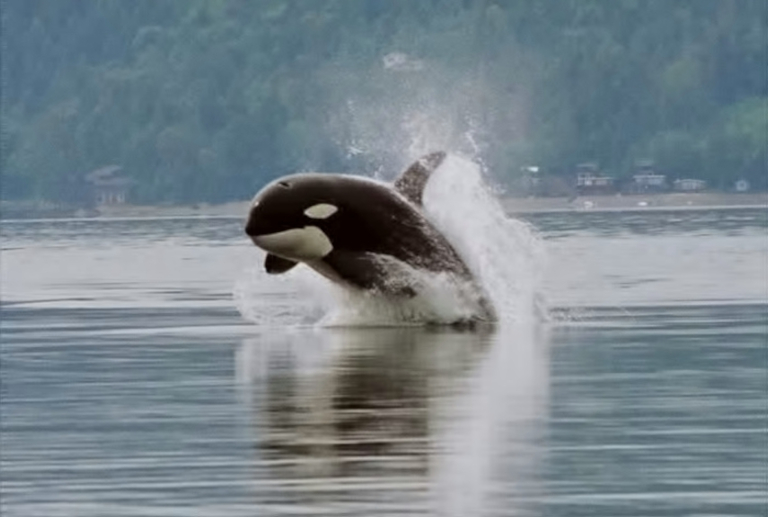(Conversation Recorded on July 31st, 2023)
Show Summary
On this Reality Roundtable, marine biologist Daniel Pauly, ocean physicist Antonio Turiel, and paleobiologist Peter Ward join Nate to discuss the numerous oft-overlooked threats to the Earth’s great oceans. From overfishing and plastic pollution to climate change and acidification, the human system is assaulting one of the most important regulators for our climate and the largest habitat for life – anywhere. What early indicators of climate impacts are these great bodies of water showing us as we hit record heat across the oceans, fish populations dwindle, and major currents slow? Why are concerns for the ocean so overlooked and what further research needs to be done? Will we learn to value these high seas for all the priceless value they give us, or will we take them for granted until it’s too late?
About Daniel Pauly
Dr. Daniel Pauly is a Killam Professor at the University of British Columbia. In 1999, Daniel Pauly founded, and since leads, a large research project, Sea Around Us, devoted to identifying and quantifying global fisheries trends. Daniel Pauly is also co-founder of FishBase.org, the online encyclopedia of more than 30,000 fish species, and he has helped develop the widely-used Ecopath modeling software. He is the author or co-author of over 1000 scientific and other articles, books and book chapters on fish, fisheries and related topics.
About Antonio Turiel
Antonio Turiel Martínez is a scientist and activist with a degree in Physics and Mathematics and a PhD in Theoretical Physics from the Autonomous University of Madrid. He works as a senior scientist at the Institute of Marine Sciences of the CSIC specializing in remote sensing, turbulence, sea surface salinity, water cycle, sea surface temperature, sea surface currents, and chlorophyll concentration. He has written more than 80 scientific articles, but he is better known as an online activist and editor of The Oil Crash blog, where he addresses sensitive issues about the depletion of conventional fossil fuel resources, such as the peak of oil and its possible implications on a world scale.
About Peter Ward
Peter Ward is a Professor of Biology and Earth and Space Sciences at the University of Washington. He is author of over a dozen books on Earth’s natural history including On Methuselah’s Trail: Living Fossils and the Great Extinctions; Under a Green Sky; and The Medea Hypothesis, 2009, (listed by the New York Times as one of the “100 most important ideas of 2009”). Ward gave a TED talk in 2008 about mass extinctions.
Watch on YouTube
Show Notes & Links to Learn More:
00:45 – Daniel Pauly works, info, and TGS episode, Antonio Turiel works, info, and TGS episode, and Peter Ward works, info, and TGS episode
04:28 – Humans and the decimation of megafauna
07:01 – Decline of fish populations
07:17 – Industrial fishery subsidies
09:13 – Global Warming effects on fish populations
10:15 – Fish sensitivity to temperature and oxygen levels
12:07 – Sea surface temperature in summer 2023 is 1 degree above typical on average
12:24 – The Mediterranean is 3 degrees above average and the North Atlantic is 1.4 degrees above average
13:31 – Disruption of the AMOC and implications
14:30 – Increase in severe weather in Europe
15:30 – IPCC Climate models
17:40 – Function of the AMOC
18:15 – PETM
18:40 – Hydrogen sulfide
19:30 – 100 degree water in the florida keys
24:01 – Fish moving polewards
29:24 – Rachel Carson – The Sea Around Us
30:49 – La Niña and El Niño
31:33 – Canfield Ocean
34:27 – Extreme temperatures in the US Northwest
36:07 – Deaths from 2021 heatwave in Vancouver
36:45 – Record temps all over the world
39:14 – Fewer winds in the north atlantic
40:50 – Extra climatic heat accumulating in the ocean
42:38 – Increase in droughts, droughts in Europe
45:30 – Processes of ocean mixing
48:19 – Don Canfield
48:40 – Ice cores in climate science
51:36 – Uniformitarianism
52:55 – Polar Vortex
53:58 – Dead Zones
56:07 – DJ White + TGS Episode
1:01:38 – Aquacultures contributing to overfishing
1:03:52 – Killer whale attacks
1;05:10 – Diversity vs abundance
1:05:50 – Abundance rises during mass extinctions
1:05:53 – Windjana Gorge
1;06:58 – Cephalopods
1:07:04 – Global proliferation of cephalopods: Current Biology
1:07:34 – Save the Nautilus
1:08:17 – Don’t Look Up
1:10;25 – Exclusive Economic Zones
1:12:02 – Healthy fish populations would have a positive effect on climate change
1:12:48 – Sea creatures at the bottom who eat carcasses and remove carbon
1:13:37 – The Graduate “Plastics”
1:13:56 – Marine plastic pollution
1:15:58 – Microplastics in clothes
1:18:15 – Ocean geoengineering (green olivine sand)
1:28:54 – How much CO2 has been released because of the Russia/Ukraine War






